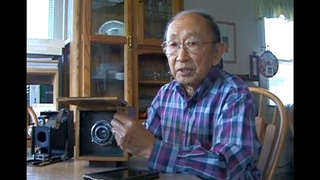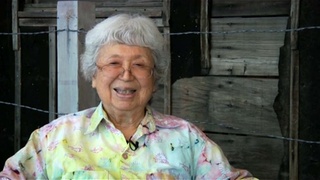Interviews
The birth of a novel through a conversation with her nephew
I must’ve been 38 and my nephew came over to visit me and he had been born in camp. He was at Berkeley at the time. He was taking a class in sociology and they mentioned Manzanar and so that was the first time that he had heard the word Manzanar outside of the family context. Because when the family got together, if we talked about Manzanar, we joked about it and he didn’t even know…he was born there. So it was some kind of camp.
But when the sociology teacher mentioned it, just mentioned it, it perked his interest so he came to see me. And he said, “Auntie, you know, I was born in Manzanar but I don’t know anything about that place. What was it? What can you tell me about it?” And I said, “Well, didn’t you ask your mother and your father?” And he says, “Yeah, but they won’t talk about it. They change the subject. It’s as if I’m doing something wrong by broaching the subject.” So I said, “Well, sure, I can tell you a little bit about Manzanar” and so I began telling him about Manzanar the same way that we always talk about it. Lousy food, you know, in the mess halls and so forth and the windstorms. I said, “Oh yeah, and we played baseball.” I just made it look like it was really some recreational camp.
But Gary – he’s a product of the 60s. He has a much higher self-esteem and he’s looking at me and he says, “Auntie, this is really weird”. He says, “You know, you’re talking like being in a prison like it was nothing. I mean how did you feel about that?” And for one moment, I allowed myself to feel. No one ever asked me how I felt about that incident. And I just broke into tears and I just became hysterical and could not answer his question and of course it embarrassed him because he didn’t know what he had done to send his auntie into hysterics. I didn’t know what was happening. I didn’t know what…I thought I was having a nervous breakdown.
Date: December 27, 2005
Location: California, US
Interviewer: John Esaki
Contributed by: Watase Media Arts Center, Japanese American National Museum










